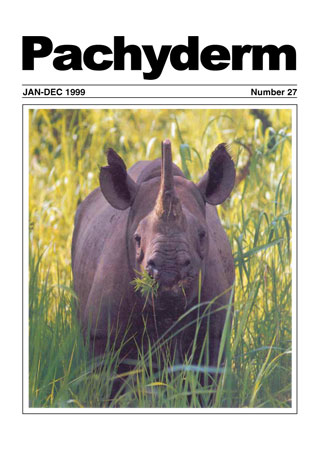Monitoring human-elephant conflict through remotely located stations
DOI:
https://doi.org/10.69649/pachyderm.v27i1.975Abstract
Changing land use patterns in the Masai Mara ecosystem, particularly the development of sedentary agriculture has provided for increasing human-elephant conflict in Masai Mara Reserve area. About 16 temporary stations, called outposts, manned by a few rangers in radio contact the regional headquarters, have been established outside the Reserve to monitor and response to conflict situations. Conflict situations are recorded in the occurrence books include: habitat encroachment, crops damage, human deaths and injuries, poaching activities, animals killed during control operations. Recorded data show that between 1987/88 and 1995/1996 60 people have been killed by elephants and 88 elephants have been killed by people in the Reserve area. One the rangers greatest frustrations is the fact that they have to keep appeasing families of the victims, knowing compensation is a long process and the renumeration when it does come is very small.
Downloads
Published
How to Cite
Issue
Section
License
Copyright (c) 1999 John M. Waithaka

This work is licensed under a Creative Commons Attribution-NonCommercial 4.0 International License.




